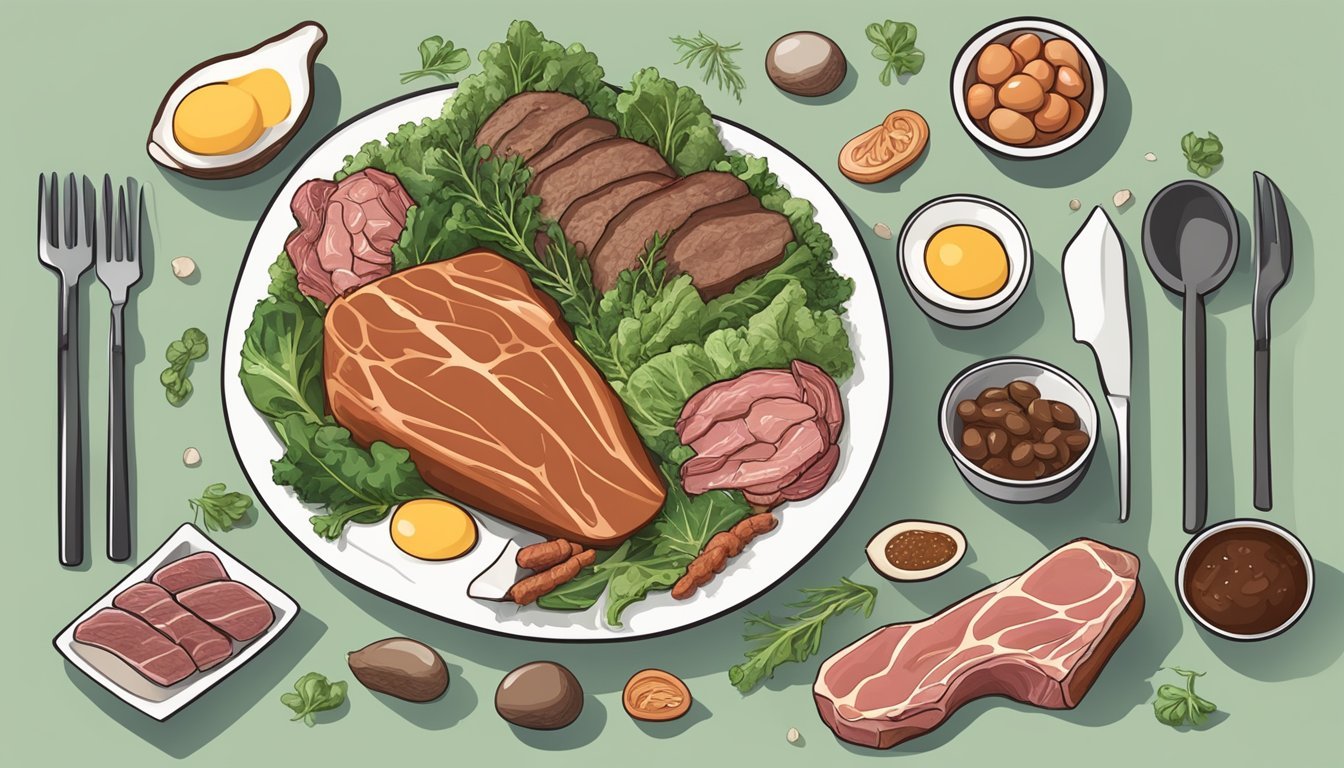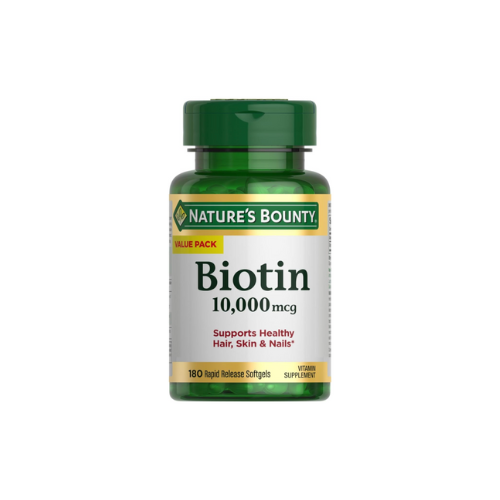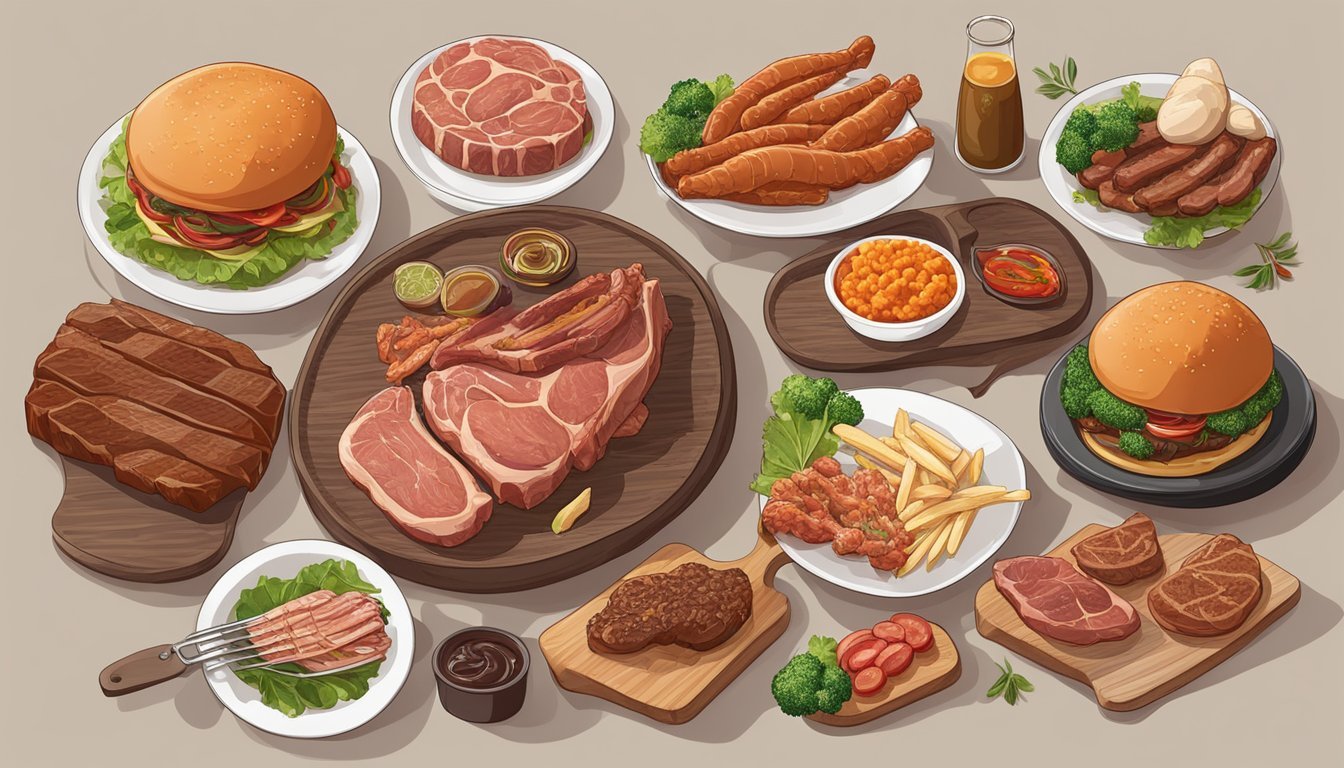Folate in the Carnivore Diet
Understanding Nutrient Intake
Folate is a water-soluble B vitamin that is naturally present in many foods and available as a dietary supplement. It is essential for DNA synthesis and repair, cell division, and growth, making it particularly important during periods of rapid growth such as pregnancy and fetal development. A deficiency in folate can lead to health issues such as anemia and can contribute to the risk of developing certain chronic diseases.
The carnivore diet, which consists exclusively of animal products and excludes all plant-based foods, presents unique challenges in maintaining adequate levels of certain nutrients, including folate. While liver and other organ meats contain folate, the absence of traditionally folate-rich fruits and vegetables can make it more difficult for individuals adhering to this diet to meet their daily folate requirements.
Discussions on online forums and nutritional analyses suggest that individuals on a carnivore diet may need to monitor their folate status, considering the potential risk of deficiency. The diet's focus on meat, fish, and animal products does provide some sources of the vitamin, yet it may not supply the recommended daily intake for all individuals. It is important for those on a carnivore diet to be aware of their folate intake and understand the necessary steps to ensure nutritional sufficiency.
Understanding the Carnivore Diet
The carnivore diet, a regimen focused solely on animal-based foods, is gaining attention for its health implications and contrast to plant-based diets.
Basics of the Carnivore Diet
The carnivore diet consists entirely of animal-based products, including meat, fish, eggs, and some dairy products. It excludes all forms of plant-based nutrition, earning it the name meat-only diet. Proponents argue that it simplifies eating habits and can lead to health improvements.
Carnivore Diet Versus Plant-Based Diets
While plant-based diets emphasize fruits, vegetables, grains, nuts, and seeds, the carnivore diet is its polar opposite, permitting only animal-based foods. This distinction creates a diet that's high in protein and fat but potentially low in certain vitamins and minerals typically found in a varied plant-rich diet.
Health Benefits and Potential Risks
Health Benefits:
Weight loss: Some individuals may experience significant weight loss.
Simplicity: It's a straightforward dietary approach requiring little meal planning.
Potential Risks:
Nutrient deficiencies: There's a risk for deficiencies in nutrients usually consumed through plant sources, such as Vitamin C and folate.
Health issues: Long-term adherence could lead to increased risk of chronic health conditions due to a high intake of saturated fats and lack of fiber.
Nutritional Profile of a Carnivore Diet
A carnivore diet focuses on animal-based foods, providing a specific nutritional profile rich in certain nutrients like protein and fats but may lack others typically found in a plant-based diet.
Protein and Amino Acids
The carnivore diet is abundant in protein, a key macronutrient essential for muscle repair, hormone production, and numerous bodily functions. Animal products provide a full spectrum of amino acids, which are the building blocks of protein. These amino acids are bioavailable, meaning they are readily absorbed and utilized by the body.
Fats and Cholesterol
Animal products are the main sources of dietary fats in a carnivore diet, including saturated fats and cholesterol. These fats are important for cellular health and hormone production. Some fatty cuts of meat also provide omega-3 fatty acids, which are crucial for heart and brain health.
Vitamins and Minerals
Meat, especially organ meats, are dense in vitamins and minerals. They are excellent sources of Vitamin A and Vitamin K2, which are important for vision, immune function, and bone health. The diet, however, may be low in other vitamins like Vitamin C and Vitamin E, commonly found in fruits and vegetables. The minerals provided through a carnivore diet are highly bioavailable, making them more easily absorbed by the body compared to those from plant sources.
I highly recommend purchasing vitamin C and vitamin E online for a convenient shopping experience!
Folate in a Carnivore Diet
When exploring the carnivore diet, it is critical to understand the availability of essential nutrients, particularly folate, which has roles in DNA synthesis and repair. This section will discuss animal-based sources of folate and how to meet the Recommended Dietary Allowance (RDA) for this nutrient within the confines of a carnivore diet.
Sources of Folate in Animal Products
Animal products do contain folate, though in varying amounts. Liver, especially beef liver, is perhaps the most significant source of this nutrient within the carnivore diet. A 3-ounce serving of cooked beef liver contains approximately 215 mcg of folate, which is more than half of the adult RDA. Eggs are another folate-containing animal product, with a single large egg delivering about 22 mcg.
Beef Liver: 215 mcg per 3 oz
Eggs: 22 mcg per large egg
RDA for Folate and Meeting the Requirements
The RDA for folate is 400 mcg for adults. Those following a carnivore diet must pay attention to their food choices to prevent nutrient deficiencies. Regular consumption of liver can greatly contribute to meeting one's daily folate needs. In contrast, muscle meats are less rich in folate, and one would have to consume a comparatively larger amount to meet the RDA through these sources alone.
Meeting the folate RDA solely through a carnivore diet can be challenging but not impossible, especially with strategic inclusion of organ meats such as liver. Regular monitoring and potentially supplementing, depending on individual health status and dietary adherence, might be necessary to ensure adequate folate intake and prevent deficiency.
The Role of Specific Foods
When scrutinizing the carnivore diet, it is essential to recognize how specific foods contribute distinct nutrients essential for health. This section will examine the nutrient profiles of organ meats, seafood, eggs and dairy, and red meat (What wine goes well with red meat?).
Organ Meats and Nutrient Density
Organ meats, such as liver and heart, are a cornerstone of nutrient density within the carnivore diet. Liver, for instance, is a rich source of folate, essential for DNA synthesis and repair. It also serves as an excellent source of vitamin A, vitamin B12, and iron. Other organ meats like kidney and heart support a balanced carnivore diet by providing nutrients that might be less abundant in muscle meat.
Seafood and Omega-3 Fatty Acids
Seafood plays a crucial role in providing omega-3 fatty acids, particularly EPA and DHA, which are vital for cardiovascular health and may help mitigate the risk of heart disease. Fatty fish such as salmon, mackerel, and sardines, are particularly high in these fatty acids. Regular consumption of seafood can also offer iodine, a nutrient important for thyroid function, which is not as readily available in terrestrial animal products.
Eggs and Dairy for Diverse Nutrients
Eggs are prized for their nutrient variety, offering high-quality protein, choline, and vitamins D and B12. They are low in carbohydrates and are hence compatible with the carnivore diet's macronutrient ratios. Dairy products, particularly butter and hard cheeses, provide calcium and fat-soluble vitamins. While some proponents of the carnivore diet limit dairy due to lactose content, others incorporate it for its nutritional benefits, with a preference for lower lactose options.
Red Meat: Benefits and Concerns
Red meat, especially beef, is a staple in the carnivore diet and is a substantial source of protein, B vitamins, and minerals such as iron and zinc. However, it is important to be aware of concerns regarding excessive red meat consumption, as some studies suggest links to increased risks of heart disease and cancer. Despite the debate, red meat remains a primary source of nutrients for those following a carnivore diet, with a focus on consuming it in moderation and opting for grass-fed varieties when possible.
Comparing Dietary Outcomes
In considering the carnivore diet, it is crucial to evaluate its effects on various health aspects, including weight management, inflammation and immunity, and mental health.
Weight Management and Energy Levels
Individuals on the carnivore diet often report weight loss due to the high protein and low carbohydrate characteristics of the diet, which can contribute to increased satiety and reduced caloric intake. Research indicates that diets higher in protein may support fat loss while preserving lean muscle mass. The diet's emphasis on fatty meats and absence of carbohydrates also leads to a metabolic state known as ketosis, which can enhance fat burning and, consequently, energy levels.
Impact on Inflammation and Immunity
The carnivore diet's impact on inflammation and immunity can be twofold. On one hand, the elimination of plant-based foods, which sometimes contain anti-inflammatory compounds, can raise concerns. On the other hand, some proponents claim that removing potential inflammatory plant lectins and sugars could lower inflammation. However, there is a need for comprehensive studies to validate these effects and outline the diet's influence on the immune system.
Mental Health and Neurological Effects
The relationship between diet and mental health is complex. While some individuals on the carnivore diet report improvements in mood and cognitive function, these anecdotal reports require substantiation through rigorous research. Nevertheless, the importance of adequate nutrient intake for mental health is well-established, with a focus on B-vitamins, Omega-3 fatty acids, and minerals, which must be considered in the context of the carnivore diet's limitation to animal products.
Addressing Common Concerns
The Carnivore diet raises important questions about nutrient sufficiency, particularly with respect to vitamins and fats. This section aims to dissect concerns regarding vitamin deficiencies, fat balance, and potential health risks associated with this diet.
Vitamin Deficiencies and Scurvy
Vitamin C is crucial for preventing scurvy, a disease resulting from vitamin C deficiency. One might surmise that eliminating plant sources could lead to scurvy; however, the carnivore diet's proponent claims that lower carbohydrate intake reduces the requirement for vitamin C, and that organ meats can provide sufficient amounts to prevent deficiencies.
Common Deficiencies:
Folate (B9)
Biotin (B7)
Vitamin C
Sources to Combat Deficiency:
Organ meats (rich in various vitamins)
Fish roe (contains Vitamin B12 and folate)
Bone broth (small amounts of Vitamin C)
If you're looking for folate and biotin, buying it online is your best bet!
Balancing Omega Fats
A common nutritional target is to balance omega-3 and omega-6 fatty acids to support cardiovascular health. Critics argue that a meat-heavy diet skews this balance towards omega-6, which could elevate the risk of inflammation-related diseases. To ensure a more favorable omega balance, it's essential to include sources high in omega-3s, such as:
Fatty fish (salmon, mackerel, sardines)
Grass-fed meat (typically has a more favorable omega-3 to omega-6 ratio)
Fish oil supplements (if dietary intake is insufficient)
Potential for Increased Disease Risk
Some believe that high intake of red meat, especially processed meat, may be linked with a heightened risk of heart disease and certain cancers. While the carnivore diet may provide beneficial nutrients, one should consider the type and quality of animal products consumed to mitigate such risks.
Heart Disease and Cancer:
Risk potentially increased with processed and high-fat meats.
Mitigation through the inclusion of lean meats and avoiding processed options.
Cardiovascular Health:
Emphasis on including fatty fish and avoiding charred or overcooked meats.
Awareness of the diet's potential impact on cholesterol levels and arterial health.
Supplementation and Diet Variation
The need for dietary supplements and the inclusion of varied animal products are critical discussions among those adhering to a carnivore diet. These steps are often necessary to meet nutritional needs and avoid deficiencies related to chronic diseases.
When to Consider Supplements
Individuals on a carnivore diet may need to consider supplements to prevent nutrient deficiencies that cannot be met solely by meat consumption. Vitamin C supplementation, for example, is crucial for preventing scurvy, a disease resulting from a lack of vitamin C. Although fresh, unprocessed meats can provide some vitamin C, the amount is often insufficient, especially if the meat is cooked or processed. For those who avoid organ meats, folate supplements might be necessary, as folate is essential for DNA synthesis and repair.
B Vitamins: Especially if organ meat consumption is low, B vitamin supplements, including biotin and folic acid, may be needed.
Vitamin C: Essential to prevent scurvy and support the immune system; consider supplements if fresh, uncooked meat intake is minimal.
Incorporating Varied Animal Products
Consuming a variety of animal products can help minimize nutrient deficiencies. Organ meats, such as beef liver, are rich in folate and should be included in the diet. Eggs and dairy provide additional nutrients and are valuable sources of biotin, vitamin B12, and vitamin D.
Organ Meats: High in folate and B vitamins, relevant to avoiding anemia and supporting cellular functions.
Eggs and Dairy: Important for a wider spectrum of nutrients like vitamin D and calcium for bone health.
Role of Diet in Chronic Disease Prevention
A carnivore diet's role in the prevention of chronic diseases such as diabetes, cancer, and heart disease is heavily debated. Some studies suggest that a diet low in carbohydrates, like the carnivore diet, may improve markers of diabetes by stabilizing blood sugar levels. However, there is also a concern regarding the diet's high saturated fat content, which may have implications for heart disease. A balanced approach with varied animal sources, such as the inclusion of fish rich in omega-3 fatty acids, might mitigate some of these concerns.
Fish: Rich in omega-3 fatty acids, supportive in reducing inflammation and potentially lowering the risk of heart disease.
Chronic Disease: Evidence suggests that diet can influence the risk and progression of diseases like diabetes, yet it should be balanced to manage potential risk factors for cancer and heart disease.
Carnivore Diet in Special Populations
When considering a carnivore diet for special populations, specific nutritional concerns must be addressed to ensure adequate intake of essential nutrients to support their unique physiological demands.
Pregnancy and Child Development
Pregnant individuals require higher folate intake to prevent neural tube defects and aid in cell growth. A carnivore diet may provide folate via organ meats, especially liver. However, they must ensure they consume sufficient quantities for both maternal health and fetal development. Moreover, bone broth can offer calcium, crucial for fetal bone formation.
Athletes and High-Performance Individuals
Athletes and individuals with high-performance lifestyles may need a carnivore diet rich in protein for muscle repair and energy. Organ meats, particularly heart, which is dense in CoQ10, may support energy production. These individuals often necessitate higher calorie and nutrient-dense foods to sustain rigorous physical activity, making the nutrient bioavailability in animal products an attractive option.
Elderly Nutrition and Bone Health
For the elderly population, bone health is paramount, necessitating adequate calcium intake. A carnivore diet may need to be supplemented with bone broth, known for its nutrients supporting bone density. They must monitor their diet closely to prevent potential nutrient deficiencies, such as vitamin D and calcium, which are critical for reducing the risk of osteoporosis and fractures.
Emerging Research and Future Directions
As the carnivore diet gains popularity, the breadth of research expands, providing a clearer view on its nutritional impact, including how it relates to folate levels in the body.
Scholarly Analysis and Clinical Trials
Current scholarly analysis underscores a dearth of comprehensive clinical trials focusing on the carnivore diet's long-term effects and its relation to folate sufficiency. Future research aims to establish more definitively whether animal-sourced foods alone can meet the body's folate needs, or if supplementation may be necessary. Researchers, such as Dr. Shawn Baker, advocate for such studies that could shift dietary paradigms.
Testimonials and Anecdotal Evidence
Anecdotal evidence, predominantly shared through testimonials, suggests various health benefits of the carnivore diet. Participants frequently report an increase in well-being, attributing improvements to the exclusion of plant-based foods. As more individuals adopt this diet, these testimonials may guide hypotheses for empirical research.
Potential Impact on Public Health Guidelines
The accumulation of research and analysis on the carnivore diet's effect on nutrients like folate could influence public health guidelines. With institutions like the CDC emphasizing the importance of folate, particularly folic acid, for reproductive health, new evidence may necessitate a reevaluation of current recommendations. The quest for evidence-based guidelines continually adapts to emerging research, ensuring that dietary advice supports optimal public health.
Lifestyle and Practical Considerations
The carnivore diet requires significant considerations regarding day-to-day living, its role as an elimination diet, and the practicalities involved in meal preparation and its broader societal and environmental impacts.
Carnivore Diet as an Elimination Diet
The carnivore diet functions effectively as an elimination diet. Individuals remove plant-based foods entirely, which may help identify food sensitivities or allergies when these foods are gradually reintroduced. During this process, one must pay close attention to their body's response to the reintroduction of different food groups.
Food Preparation and Cooking
Meal preparation on a carnivore diet often involves less variety but requires careful attention to cooking methods to maintain interest and palatability.
Breakfast might be scrambled eggs and bacon.
Lunch could consist of a simple turkey burger topped with a fried egg.
Dinner could feature a serving of pork chops cooked in butter.
Incorporating different cooking techniques and seasonings can help counter potential meal monotony.
Societal and Environmental Impacts
The carnivore diet's focus on animal-based foods has societal and environmental repercussions:
Societal acceptance varies, with some viewing the diet as extreme or unbalanced.
Environmental concerns center around the carbon footprint of meat production and potential resource inefficiencies compared to plant-based diets.
Individuals must weigh these factors against personal health benefits when considering the carnivore diet.
Conclusion
The carnivore diet predominantly consists of animal-based food with a focus on meat consumption. While some individuals report benefits such as weight loss and improved digestive health, the diet's nutritional completeness, particularly concerning folate—vitamin B9—is debated.
Folate is essential for DNA synthesis and repair and plays a crucial role in cellular growth and function. The absence of traditional folate sources like leafy greens and legumes in the carnivore diet raises concerns of potential deficiency. Folate deficiency is a health risk that can result in anemia and, during pregnancy, can increase the risk of neural tube defects.
However, organ meats—permissible within the carnivore lifestyle—are rich in many nutrients, including folate. Thus, inclusion of organ meats could mitigate the risk of deficiencies. The diet may necessitate supplementation, specifically for individuals with MTHFR genetic mutations impacting folate metabolism, where additional methylfolate might be needed.
Key Points:
Health: The carnivore diet may improve certain health markers for some individuals.
Pros: Potential benefits include weight management and gastrointestinal health.
Cons: Risk of nutrient deficiencies, particularly folate, if not properly planned.
Nutrition: Organ meats could provide necessary micronutrients, including folate.
Individuals considering this dietary approach must proactively manage their nutrient intake to ensure their health remains uncompromised. Consulting healthcare professionals for personalized advice and conducting regular blood tests to monitor nutrient levels is recommended.














